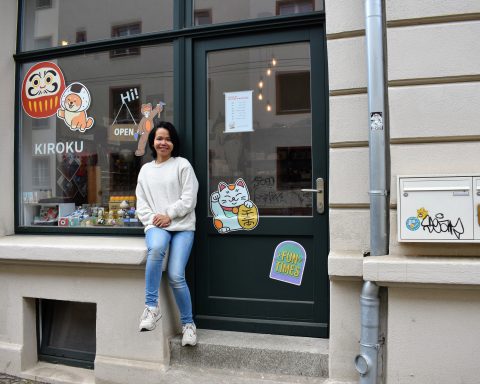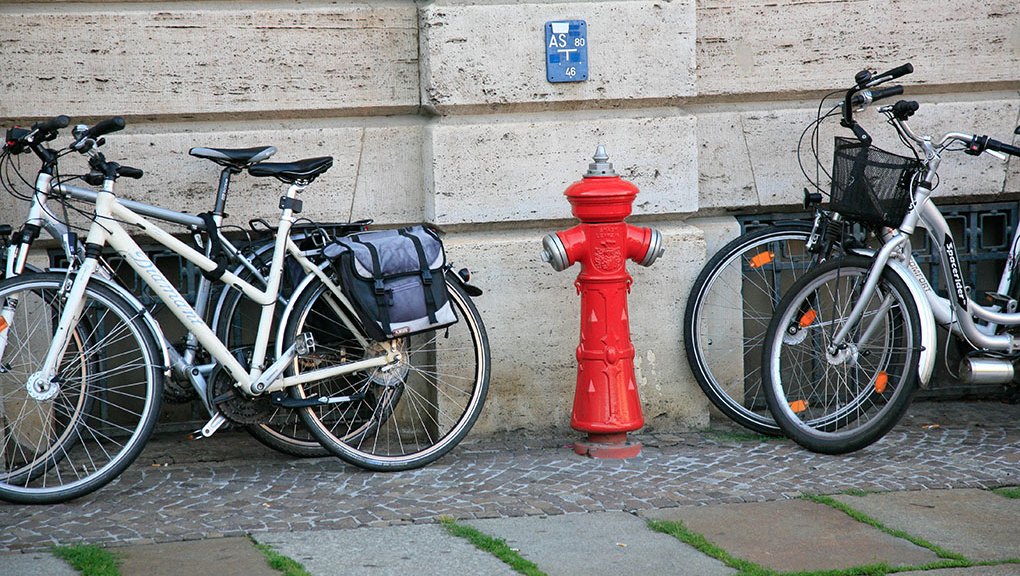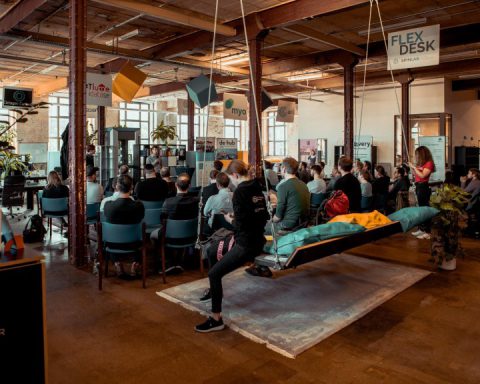The city of Shanghai is one of the main startup hubs in the world. Together with Beijing and Shenzhen in the mainland, as well as Hong Kong, it puts China into the Top 10 in worldwide startup rankings. In fact, it’s hard to say how many startups there are in Shanghai, let alone in the whole of China!
In 2015, the talk on the town was about China tackling Silicon Valley. Now it’s time we focus on not staying too far behind.
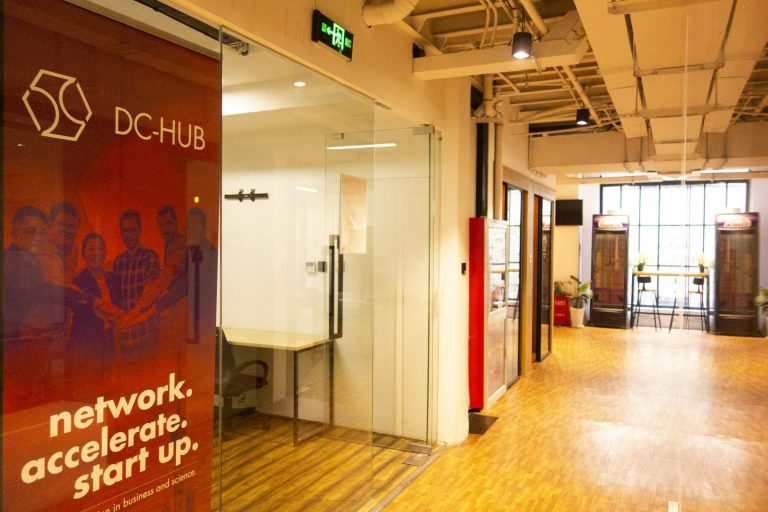
I have been involved in both the German and Chinese startup scenes, and I can tell you they are quite different. In a nutshell, I’ve observed greater speed, diversity and idea versatility in China than what we see in this scene in the West. DC-Hub, in which I am a partner, is trying to bridge this gap.
The Leipzig-based initiative gives German entrepreneurs the chance to engage and learn from China’s leading minds and startups, through a four-week accelerator program in Shanghai. The program is prepared in partnership with Leipzig’s Basislager Coworking.
Reps from six young companies accepted the DC-Hub challenge in autumn 2018, joining its first Shanghai Startup Class (SSUC18). The DC-Hub team and I gave them extensive mentoring, and P2 Coworking at Shanghai city center – China’s largest and oldest coworking space – provided them with a work station.
Working four weeks in China, the participants got to gain valuable insights into the Chinese startup ecosystem. They all agreed that they learned a lot – not only for their companies, but also personally.
“China is developing at a rapid pace and problems are dealt with more pragmatically than in Germany, through simply testing new innovative solutions,” said participant Matthias Riedel, founder of IoCare.
The organizers were also quite pleased with how it turned out.
“We were thrilled that so many great startups were interested in our program and applied,” stated DC-Hub project leader Steve Uhlig. “The selection process was very difficult for our jury.”
Being able to support such a diverse group of startups from all over Germany, each with their own goals and aspirations, is an important aspect of our program.
Matching Shanghai’s rapid pulse, DC-Hub planned a packed schedule.
After the teams landed in a very hot and humid Shanghai, moved into their P2 Coworking offices, and gathered first impressions of the mega-city, they spent the next day visiting China’s largest startup event, SLUSH Shanghai. Here, entrepreneurs and investors meet and an international startup community is fostered.
Participants received valuable advice from companies that have been in China for many years. They also visited the Chamber of Foreign Trade, the largest Chinese accelerator, and the renowned Tongji University. They participated in workshops on topics such as the Chinese legal system and e-commerce, organized in collaboration with TU Berlin and the Chinese-German College for Postgraduate Studies (CDHK).
Other highlights of the program included discussions with German CEOs, a meeting at the Shanghai technology park Caohejing, and pitches to potential partners and investors. This provided essential insights and first contacts were made, some of which developed into important collaborations over the duration of the program.
Events and networking were indeed an important component of the SSUC18. Several events took place that enabled the participants to understand the Chinese market, economy and culture, as well as how to do business in China.
In essence, “one or several illusions were destroyed, but just as many new ideas and new approaches were developed.”
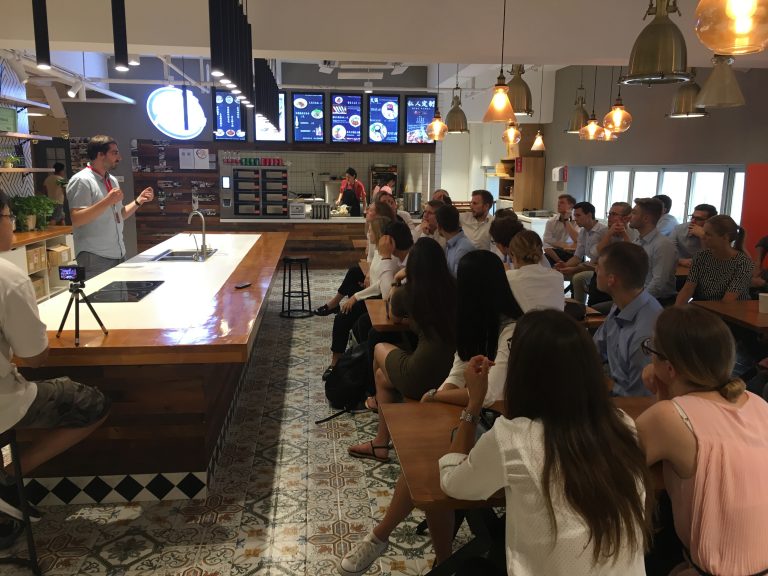
For example, participant diafyt learned why, despite being translated into Chinese, there were only a few downloads of their app from the Google Play store in Hong Kong. The startup also learned how to get in contact with local programmers, and what their app needs to look like for the Chinese market.
Another important lesson for diafyt’s Thomas Wuttke was how important for communications in China the hugely popular app WeChat has become. He himself learned to adhere to it:
“Nothing works without it, but many things work a whole lot easier with it. I arranged all business meetings through WeChat, even the purchasing options were negotiated using WeChat.”
One of the most important insights the startups gained was that networking and an extensive cultivation of contacts is essential for business success in China.
“Good business relationships are almost more important than the associated contracts, and DC-Hub made us very aware of this,” said IoCare’s Riedel. And as Peakboard founder Patrick Theobald added:
Using the German straightforward approach is like biting on stone. The so-called ‘Guanxi’ (relationships/connections) is seen as much more important than immediately getting to the point.
“Relationships on a personal level need to be built first to create trust. That was just one of many experiences that we were able to make in the first days.”
Some of the startups have returned to China again to continue building their business relationships.
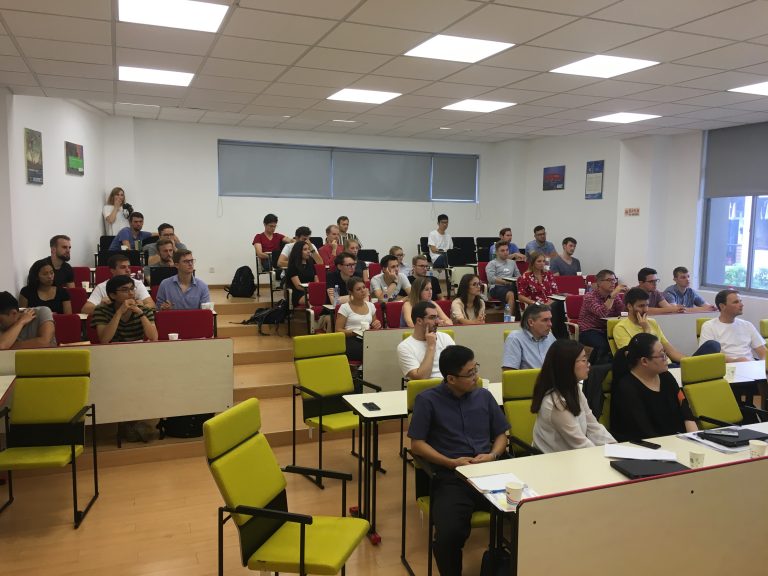
DC-Hub stands for “business and innovation hub Germany-China,” and is financed by Germany’s Federal Ministry of Education and Research. DC-Hub organizes two Shanghai startup classes per year, each enabling six selected startups from Germany to spend four weeks in China. The funding includes flights, coworking spaces, access to networks, and participation in events and workshops. The next class you can apply for starts in September 2019.
For information and applications, please visit the website. Our next big event is the Deutschland-China Startup Forum: 24-25 January 2019 at Basislager, Leipzig city center.
By Martin Gothe

